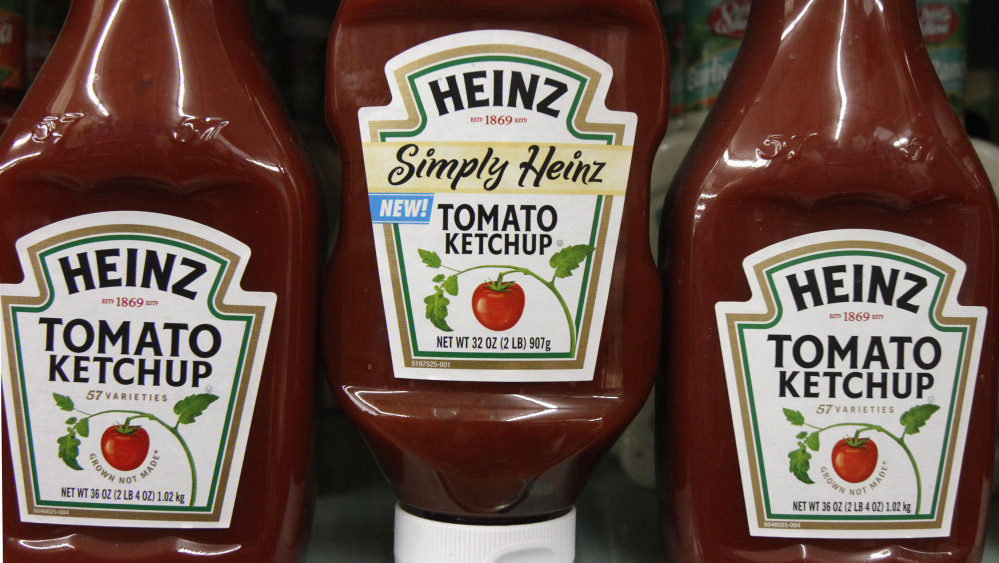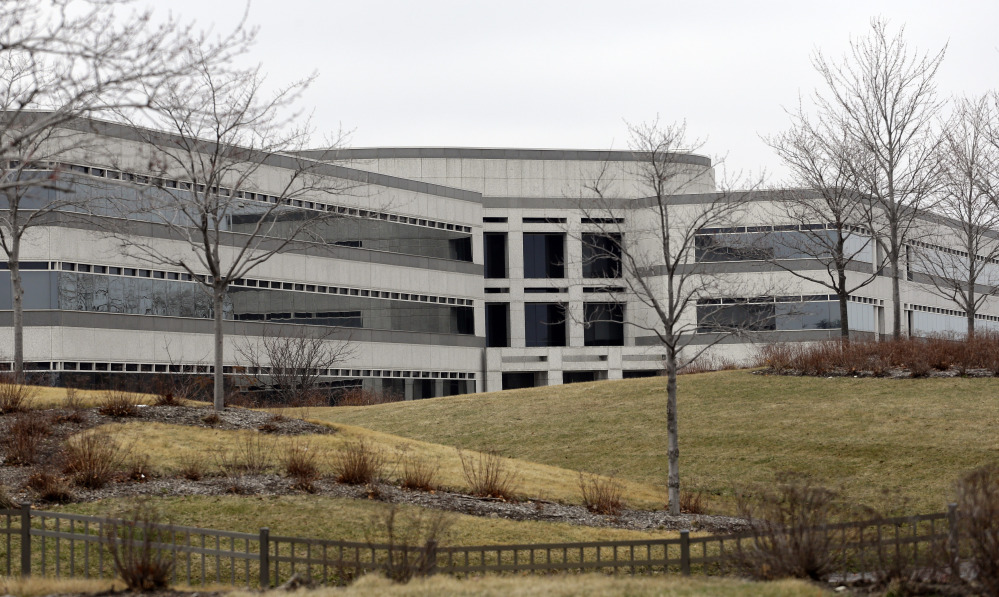CHICAGO — Heinz is buying Kraft Foods in a deal that gives Kraft the chance to bring its iconic American foods to international markets while boosting Heinz’s sales in U.S. grocery stores.
The acquisition, announced Wednesday, stands to create the third-largest food and beverage company in North America and the fifth-largest worldwide.
Kraft, on its own, is the fourth-largest North American food-maker with products such as its iconic Macaroni & Cheese, Maxwell House coffee and Oscar Mayer meats.
It is the latest food industry transformation cooked up by Warren Buffett’s Berkshire Hathaway and Brazilian investment firm 3G Capital. The duo bought Heinz in 2013, and industry watchers anticipate the team could gobble up more food manufacturers after Kraft.
Kraft Heinz, as the company is to be called, will be publicly traded, with 51 percent owned by Heinz’s current shareholders and 49 percent owned by Kraft shareholders. It has combined sales of about $28 billion and 46,000 employees.
The new company will have headquarters in Heinz’s hometown of Pittsburgh and in the Chicago area, with 3G’s Alex Behring serving as chairman. The board will include Heinz’s six board members, including Warren Buffett, and five people appointed by the current Kraft board, including Kraft Chairman and CEO John Cahill.
Berkshire Hathaway and 3G committed to owning the new company for the long term. Ultimately, once the effort to create Kraft Heinz is completed, some expect Berkshire and 3G will look to add even more well-known products to the new entity.
“We continue to think that 3G has a much bigger appetite, globally, and CEOs across consumer staples should be on notice,” said SSR analyst Rob Campagnino, ticking off names such as Coca-Cola, Unilever, Pepsi and Mondelez as potential targets.
The companies plan to cut about $1.5 billion in annual costs by the end of 2017 through zero-based budgeting by examining every dollar it spends. Executives said it was too early to speculate on how many jobs might be part of those reductions. Executives said Wednesday that it makes sense to run Kraft’s businesses from its headquarters and Heinz’s operations from Pittsburgh, but noted that some people’s jobs could switch between locations.
Kraft renovated its headquarters in the Chicago suburb of Northfield after its 2012 split from Mondelez as it tried to inject a startup vibe at a company that traces its start to 1903, when J.L. Kraft rented a horse and wagon to sell wholesale cheese to Chicago stores.
Executives from both companies gathered in one of Kraft’s so-called project garages, an updated conference room, to discuss the deal over the phone on Wednesday.
The boards of both companies unanimously approved the deal, which now needs approval from Kraft shareholders. It is expected to close in the second half of 2015.
Kraft, with Grey Poupon, Jell-O and a host of other well-known but older brands, has struggled of late to keep up with competitors and changing consumer tastes. Increasingly, shoppers are demanding fresher, less-processed food.
Still, the company estimates that the average household spends more than $100 every year on 40 purchases of Kraft products. Executives said Wednesday the combined company’s brands will remain intact for now, but acknowledged the possibility of shedding some in the future.
Kraft shareholders are set to get a special cash dividend of $16.50 per share, or a total of about $10 billion, along with stock in the combined company. The new company will keep Kraft’s dividend with plans to increase it over time.
Shares of Kraft soared nearly 38 percent or $23.11, in midday trading.
Not all analysts are convinced the deal offers such value.
“The tie-up is also one of convenience,” Neil Saunders, managing director of retail analyst Conlumino, said in a statement. “Both brands have suffered from a slowdown in sales and are now looking to provide investors with a new growth story. This merger provides just that and comes with the usual narrative that a larger company with a significant portfolio of brands will be able to compete more efficiently and effectively.”
In a conference call with analysts last month, Cahill acknowledged that changes were needed, such as the need to dig deeper into consumer preferences. Kraft announced the departure of executives including its CFO and said then that it planned to lay out more of its strategy in the coming months.
But at that point, Cahill had already been approached by Behring, chairman of Heinz and the managing partner at 3G Capital. Cahill said he and Behring first spoke in late January.
Copy the Story LinkSend questions/comments to the editors.




Success. Please wait for the page to reload. If the page does not reload within 5 seconds, please refresh the page.
Enter your email and password to access comments.
Hi, to comment on stories you must . This profile is in addition to your subscription and website login.
Already have a commenting profile? .
Invalid username/password.
Please check your email to confirm and complete your registration.
Only subscribers are eligible to post comments. Please subscribe or login first for digital access. Here’s why.
Use the form below to reset your password. When you've submitted your account email, we will send an email with a reset code.